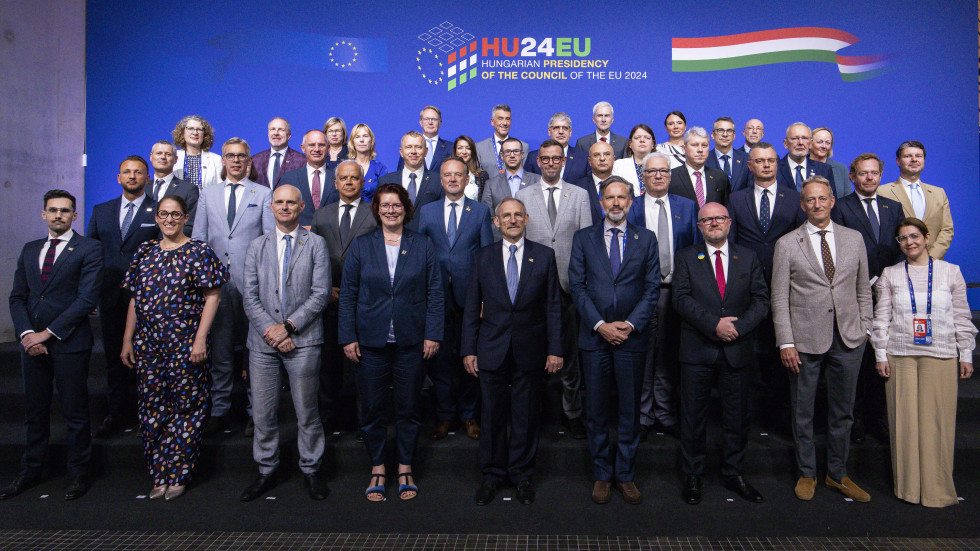Interior ministers meet in Budapest to discuss the future of cooperation on home affairs
On the future of cooperation, Minister Poklukar said that the new legislative framework adopted under the Pact on Migration and Asylum was our main guiding principle in tackling irregular migration. Our main objective is to implement the Pact, which is a good basis for more effective migration management.
Participants generally stressed that return was a key component of effective migration management, as was an integrated approach – forging appropriate partnerships with third countries along migratory routes, combating smuggling networks and ensuring that our activities were sufficiently resourced. Minister Poklukar also highlighted the area of return, arguing that returns must be effective and sustainable. He also called on the European Commission to be more actively involved and to provide assistance in return not only to the countries of the European Union (EU), but also to the Western Balkan countries. He also drew attention to the Return Directive, where progress is urgently needed to overcome the deadlock.
Special emphasis in partnerships must also be given to the fight against smuggling and trafficking in human beings. "We want the European Border and Coast Guard Agency (Frontex) to conclude negotiations with all partners in the Western Balkans as soon as possible and to become operational. We also need to ensure that Frontex has sufficient resources for its operational activities in third countries."
Organised crime poses a serious security threat at both European and global levels, and a coordinated, targeted response is essential. "We believe that legislation on organised crime should be harmonised at EU level, as this common basis would make it easier to investigate cross-border organised crime. International cooperation and the timely exchange of operational information are key to the successful fight against organised crime. The timely exchange of information must be followed by better analysis and integration, and the actions of law enforcement authorities by an effective judicial response," said Mr Poklukar in the debate. The ministers stressed the need for cooperation with third countries and the conclusion of cooperation and information exchange agreements with Europol in order to effectively fight organised crime. Regions such as North Africa and Latin America and the Caribbean were highlighted, while Slovenia's priority is cooperation with the Western Balkan region, which is a key partner in the fight against organised crime due to the role played by organised crime groups from this area.
Ministers agreed that Europol is an important agency providing assistance in investigations in the member states and that it should be adequately funded. European Multidisciplinary Platform Against Criminal Threats (EMPACT) was highlighted as an appropriate platform for operational cooperation and should also be given sufficient financial resources. The fight against illicit drugs and precursors, the fight against illicit arms trafficking and environmental crime were highlighted as areas of organised crime that require special attention.

Group photo on the sidelines of the informal Justice and Home Affairs Council meeting | Author Madžarsko predsedstvo Svetu EU

